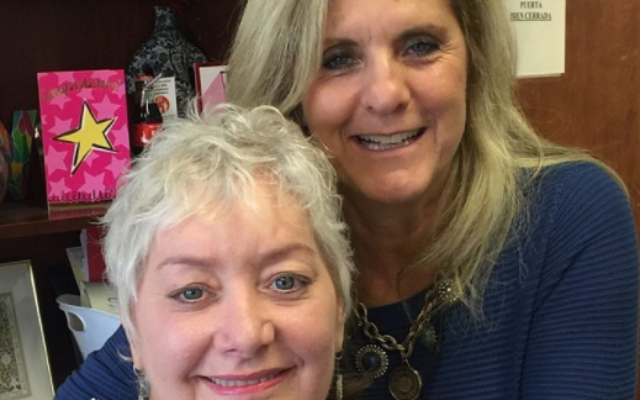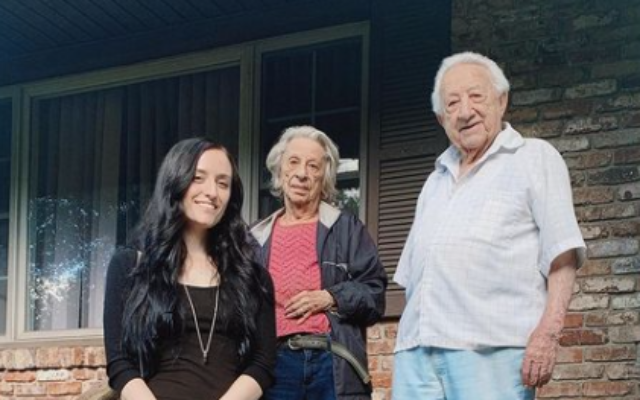One Good Deed Eases Senior Loneliness
The JF&CS program brings volunteers and seniors together to help keep people in their own homes.
While the art of romantic matchmaking has largely disappeared from the lives of the younger generation, matchmaking of a different sort is very much a part of a program that eases the pain of loneliness in the lives of seniors here.
For the last 15 years, One Good Deed has matched singles and couples over 65 who are still living in their own homes with a volunteer who provides a friendly voice and presence and, sometimes, even a helping hand.
The program, which since 2016 has been run by the Jewish Family and Career Services (JF&CS), is managed by Vivienne Kurland, who believes that the old idea of matchmaking is a good description of what she does.
“We consider ourselves matchmakers,” she said. “We go out and meet all our recipients in their homes to make sure that their home is safe and to see what else we might be able to offer through JF&CS services, and also really to get to know them. And then we match them, one on one with volunteers out in the community. We try to make it easy for the volunteers.”
According to Kurland, the program is aimed at providing older people with more social contact to help them avoid the feeling of isolation, so that they can remain in their own home longer.
“That is actually one of the things that our founding director, Sharon Spiegelman, wrote into our mission statement. We want to keep people living independently in the place that they want to remain.”

Currently about 110 individual matches have been made through One Good Deed (some 490 matches since the program began) — or one volunteer dedicated to one recipient, as Kurland describes her seniors. But the demand for volunteers to match with seniors in need of a connection remains. Particularly in recent weeks, when contacts are beginning to be made again, not by telephone — as they have during most of the pandemic — but in person.
Just before Rosh Hashanah, one volunteer, Mira Cohen, dropped in to visit her recipients, a couple who had been married for 69 years, and brought her boyfriend along. At one point, the friendly conversation between herself and her matches, Selma and Abe, even touched on the more traditional sort of matchmaking.
“The four of us stood outside talking for an hour. Selma and Abe were so friendly and welcoming to my boyfriend, and Selma even asked him why he hadn’t proposed yet. Honestly, we all need a friend like Selma.”
Writing about her experience for JF&CS, Cohen, who began her relationship with the couple as a way of making a meaningful contribution to others, could herself be getting as much as she gives.
“It’s a privilege to be part of their life in this small way, but they have no idea how much they have impacted my life.”
She’s come to look forward to their conversations each week, and the couple has even encouraged her to begin calling her own father more often, which has led her to develop a better relationship with him.
That’s not an uncommon experience, according to Kurland, who believes that One Good Deed leads to many more good deeds.
“Recipients call us and say, I can’t believe it, you guys are angels, the volunteers are angels. They’ve changed my life. Or when the volunteer says I had the most wonderful day and the most wonderful experience. I tell you there’s magic in the matchmaking we do.”




comments